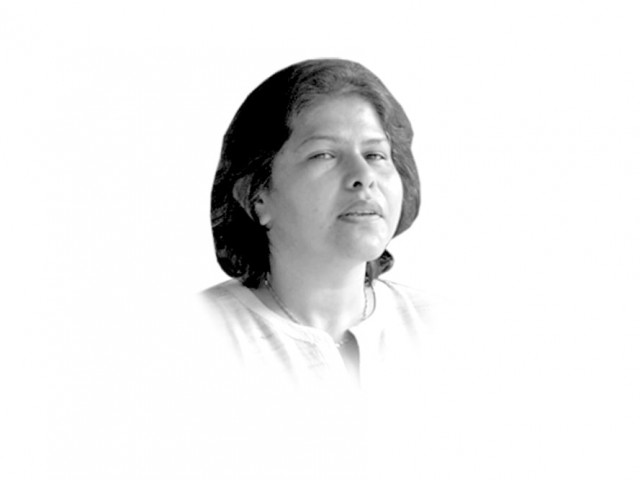Political deterrence
If the establishment feels it has greater power to push Zardari out it better think carefully.

Political deterrence
So, what we are watching at the moment is both sides trying to squeeze the other up the escalation spiral. The establishment’s advantage is that it is the most powerful actor, it controls and commands the national narrative, it has built an image for itself as the only alternative institution and looks much more efficient than all other players.
Naturally, a political government that suffers from serious inefficiency and doesn’t know the tricks of creating a counter narrative is a weaker party. For instance, the government’s media team plays a poor defensive game and does not even know how to get on the offensive (this does not mean shouting at people rudely on television programmes). The ruling party’s information team is constantly trailing behind and lacks a plan to protect itself.
If this is to be considered as a game between two players that is Asif Zardari and the establishment then, it is obvious that in his own estimation he has not lost the game as yet. The biggest deterrence he has deployed is the ethnicity card and putting his weight behind the empowerment of the smaller provinces. Some fellow writers believe that the ‘Sindh’ card might work for him if he gives in now. But the fact of the matter is that the Sindh card or the other smaller ethnic card is already operative.
From the lens of a common Baloch, Sindhi or Pashtun, Zardari is being punished for bringing about the 18th amendment. While all attention in Islamabad is focused on the articles pertaining to the judges, the said amendment will also bring about the much-awaited empowerment of the smaller provinces. Interestingly, the bulk of the ‘free and vibrant’ media in Pakistan does not care to flag that aspect of the 18th amendment.
For the very ordinary man in Sindh, in particular, there isn’t much of an option besides the PPP. The ordinary Sindhi is stuck between the partly-establishment sponsored nationalist and the MQM in its urban centers. What they have also witnessed for so many years, especially after General Ziaul Haq’s coup in 1977, is that the establishment has tried all the tricks in the bag to weaken and destroy the PPP. Starting from supporting the creation of the MQM and later the IJI, to encouraging the physical elimination of several Bhuttos and creating a division within the party, there has been a constant effort in breaking the myth of the PPP. Although the middle class and upper-middle class has developed a certain resentment for the PPP for very understandable reasons, it still lives in the minds of people, almost like a cult.
Bhutto might have been a nawab and wadera himself, but people remember him for what he has grown to represent. Bhutto is not a person but a sentiment which reminds those from the smaller provinces of the historic battle for the freedom of the Pakistani federation from the oppression of the establishment.
Mr Zardri’s ultimate weapon is the ethnic card which is not about ensuring his role in the future, but making the deep state realise the high cost of endangering his political survival. For the people of the minority provinces, the signal is that the establishment will not allow power to those from the smaller provinces, be it Deedar Shah or Asif Zardari. Forcing him out will exact a high cost on the state in term of deepening resentment and discontent which cannot be fought with weapons.
So, if the establishment feels it has greater power to push Zardari out, it better think carefully. Exploding nuclear weapons tend to destroy everything. This is not an easy war to win.
Published in The Express Tribune, October 17th, 2010.













COMMENTS
Comments are moderated and generally will be posted if they are on-topic and not abusive.
For more information, please see our Comments FAQ